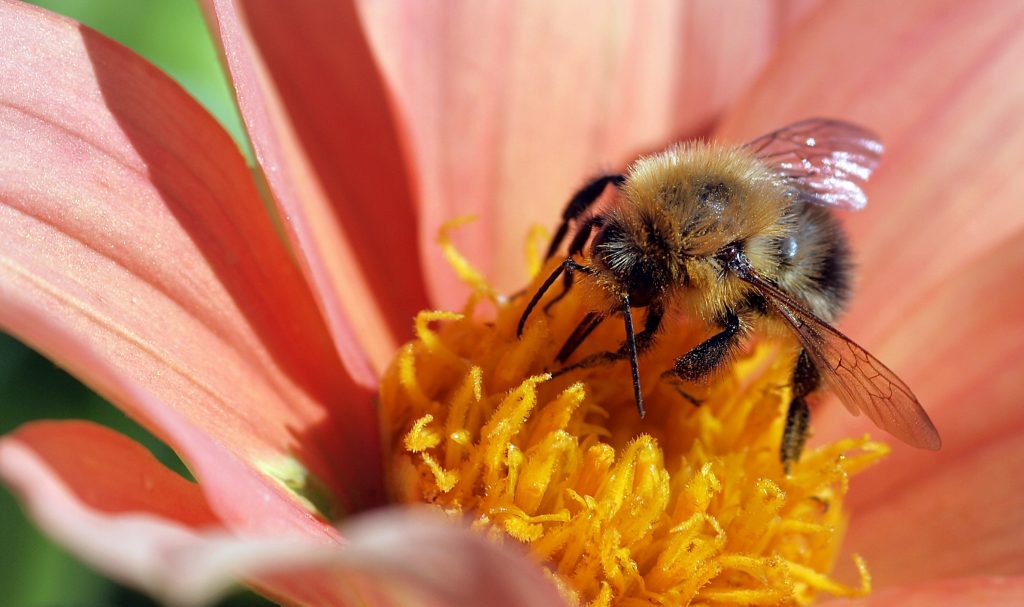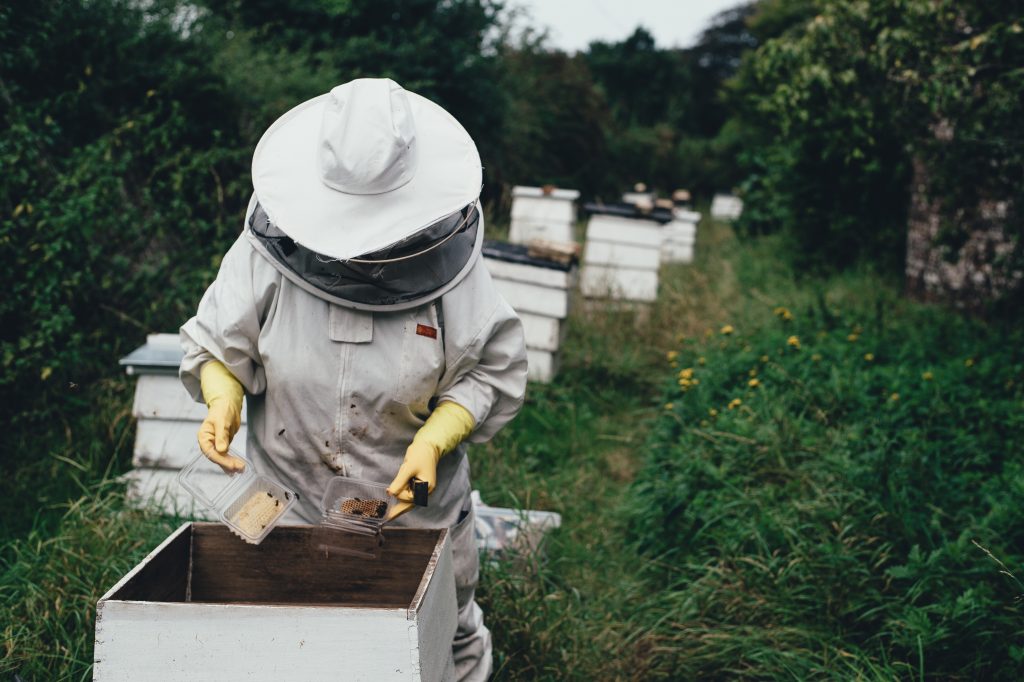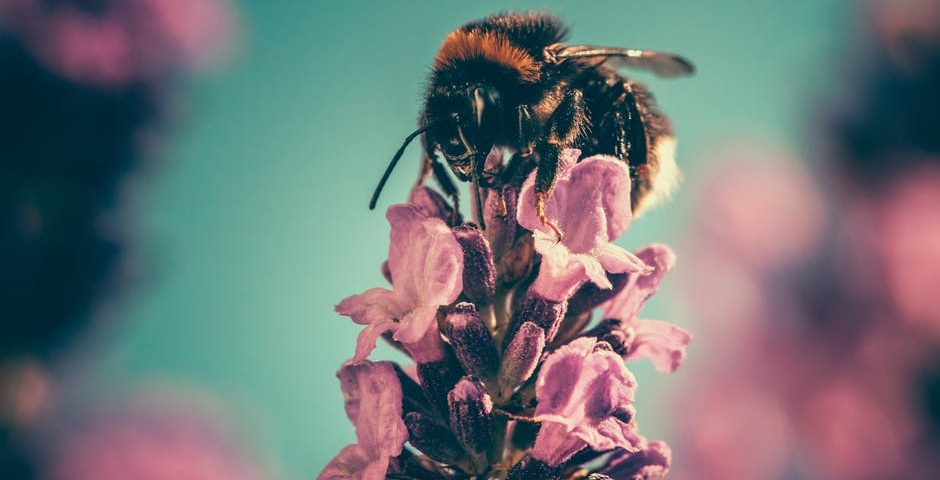The Buzz around Bees!

Plymouth Estates – Business Profile
27th April 2017
OM Magazine, Issue 107, December 2017
27th April 2017Love them or fear them, bees are a significant force behind UK agriculture. But this increasing reliance on bee polination for crop production is becoming a huge problem as their numbers continue to diminish.
Despite their importance, bees are suffering from a worrying decline in population, with researchers suggesting that the number of bee colonies in the UK had fallen 53% between 1985 and 2005, with wild honeybees thought to be nearly extinct in the British Isles.
Colony Collapse Disorder, or CCD, is a mysterious affliction devastating bee populations worldwide. First identified in 2006, the phenomenon occurs when a majority of worker bees evacuate their nest, leaving behind their queen, larvae, and a few nurse bees. Without the worker bees bringing pollen to the hive, the colony collapses. The cause of CCD is largely unknown, but researchers have attributed the disorder to a variety of issues, with the largest culprits theorised to be insecticides, diseases and parasites.
Insecticides pose one of the biggest threats to bees and other pollinators. Bees can be exposed to pesticides through a variety of ways, including direct contact via crop-spraying, contact with pollen from plants treated with neonicotinoids, and through exposure from affected soil. These chemicals prevent bees from being able to collect food or reproduce, and can cause sudden death. Other threats to bees include pests and predators, such as mites, wasps and woodpeckers.
Mites, though usually harmless to the bee, can accumulate in great numbers, infesting their bodies and causing flight difficulties, making them an easier threat to predators. Wasps effectively destroy colonies through consumption of their honey, and can also kill their larvae. Although woodpeckers are not especially common, they can cause huge damage to bees and their hives, which they will attempt to eat if food sources are low.
A world without bees would have Devastating consequences for humanity. Vital for plant reproduction, one third of the world’s food would no longer be available for consumption without bees, including fruit, vegetables, nuts, plant-based oil, cocoa beans, and even tea and coffee! In addition, bees are also an important factor in the production of non-human produce, as crops eaten by livestock, such as fodder, also require pollination.
Without bees, plants would require pollinating by hand. Essentially, bees play a fundamental role in sustaining the earth’s fragile ecosystem, and are responsible for an estimated annual £630 million of agricultural pollination in the UK alone.
Fortunately, there are many actions which can be undertaken to ensure the continued survival of bees. Some fun activities include planting bee-friendly flowers in your garden and in the local community. These plants are often easily accessible and simple to grow, and includes lavender, honeysuckle, and daffodils. Bees tend to prefer purple-flowering plants, as well as flowers with single blooms.
When travelling to collect pollen, bees can often get dehydrated, so creating a small basin to quench their thirst can often be extremely helpful. The basin doesn’t have to be elaborate, as putting some stones in a bird bath for them to crawl on is just as efficient as a custom-built product.
Ultimately, bee conservation is a 21st century reality, and although they may not be one of our daily considerations, without them humanity would suffer dire repercussions. Please access www.bumblebeeconservation.org to find out more about how you can help preserve and maintain the lives of bees across the UK.




